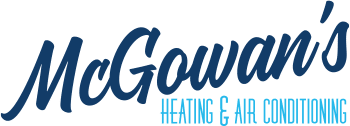
Closing the upstairs air vents in your Jacksonville, FL home might seem like a good energy-saving strategy. However, this is something that can make your home heating and cooling costs rise and lead to costly HVAC repairs. Worse still, it won’t diminish your carbon footprint. Following are five reasons why closing air vents anywhere in the building won’t help you save.
1. Your HVAC System Will Actually Lose Efficiency
After you’ve taken the time to shop, choose, and install high-efficiency heating and cooling equipment, you want to avoid actions and activities that will diminish the functioning of your entire HVAC system. Although quality heating and cooling units are rated to perform well, their ratings only hold up when they’re used correctly. Closing vents in unused, upstairs areas doesn’t change the amount of air flowing through the ducts. Moreover, it won’t necessarily impact how your thermostat is reading temperatures across the entire building or how long it takes for your thermostat to shut the heater or air conditioner off.
When upstairs vents are closed, your HVAC system will be forcing the same amount of air through your ducts as it would if the vents were open. Unfortunately, often, closed vents make heaters and air conditioners work a lot harder due to building pressure within the HVAC system. As a result, many homeowners wind up using more energy and spending more money overall.
2. Increased Air Pressure Can Damage Your Ductwork
Closing off air vents in unused rooms in any area of the home also subjects your HVAC ductwork to a lot of unnecessary wear and tear. The extra air pressure that builds up in the ducts can result in air leaks and ongoing air loss. When rips, tears, and other damages develop in HVAC ducting, heated and cooled air will be deposited behind the drywall or under your home rather than in the actual living environment. Moreover, damages like these aren’t always easy to detect. This means that you could go months or even years paying additional money due to air loss caused by damaged ducting. Once the source of the air loss is identified, you’ll have to pay even more cash to have your HVAC ducts repaired.
3. Closing Off Air Ducts Could Crack Your Heater’s Heat Exchanger
A cracked heat exchanger is no minor issue. Like damaged ductwork, this component comes with its own considerable repair costs. However, once cracked, a damaged heat exchanger becomes a major health issue. When broken, this component could cause your heating equipment to stop working entirely. If it does not stop working, hazardous carbon monoxide gas can seep undetected into your living environment with potentially deadly consequences. Thus, if you’ve been closing your upstairs HVAC air vents for saving money or as an energy-saving strategy, now is the time to stop. It is a good idea to schedule a precautionary heater and ductwork inspection.
4. You’ll Lower the Lifespan of Your Heating and Cooling Equipment
Excess wear and tear caused by closed air vents aren’t limited to just the heat exchanger and your HVAC ductwork. Every part of your heating and cooling system will have to work harder while in use. This will diminish the lifespan of your HVAC equipment and increase the frequency at which major components and entire units need to be replaced.
5. Closed HVAC Vents Increase the Likelihood of Mold and Mildew Development
Closed vents impact your HVAC system’s ability to regulate indoor humidity. This is especially true in rooms where vents are closed. In winter, lower surface temperatures will create the ideal grounds for mold and mildew development. More importantly, these growths won’t remain contained in these environments. Once airborne, mold spores can quickly spread to every corner of your living environment. They can even enter your HVAC system where they’ll be continuously circulated throughout your home. Not only is this a costly fix, but it can also make everyone in your household downright miserable until the problem is identified and resolved. Rather than dealing with itchy, watery eyes, runny noses, respiratory distress, sneezing, headaches, and more, it’s better to simply find an effective and significantly safer energy-saving strategy to employ.
Smart Strategies for Saving Energy and Money in Your Jacksonville Home
If you’re concerned about your home heating and cooling costs and want to take immediate steps to lower them, start by scheduling a comprehensive HVAC system inspection. You can also ask your service provider to perform an HVAC energy audit. These services will give you a better understanding of how your HVAC system is currently performing, and they’ll also point out areas in need of improvement.
If you have an older air conditioner, you can expect that it’s lost approximately half of its efficiency after its 12th year of use and that it will continue to experience progressive losses as time goes on. This is also true for heating equipment. Heaters lose approximately half of their efficiency after just a decade of use. Upgrading old, outdated equipment will give you lower energy bills and a lower carbon footprint without creating the risk of mold development, carbon monoxide leaks, or ductwork damage.
You also have the option of paying to have your central HVAC system zoned. With zoning, you can streamline the indoor temperatures in individual areas to suit everyone’s habits and needs. Best of all, you can do so without increasing air pressure in your HVAC ducts and subjecting your heating and cooling system to a lot of unnecessary wear. Zoned central HVAC systems are flexible and adaptable enough to meet the diverse and constantly changing needs of large-sized households. In fact, they often match the efficiency of ductless multi-split heating and cooling systems and usually cost a lot less to install.
As an even cheaper alternative, you can consider having a smart thermostat installed. This is an upgrade worth making even if you’ve already invested in a programmable one. Smart thermostats have Wi-Fi capability and can be adjusted from any location using a mobile phone, tablet, or computer. They also have energy-saving features and capabilities that far exceed those of programmable options. Finally, when it comes to maintaining the efficiency of your home heating and cooling equipment, it pays to schedule annual tune-ups. If your home heating and cooling costs have consistently been on the rise, this is a likely indication of poor maintenance or equipment that’s nearing the end of its lifespan. Regular visits from trained professionals will allow you to catch and correct minor, efficiency-related issues before they result in higher overhead costs.
At McGowan's Heating & Air Conditioning, we offer a comprehensive range of heating and cooling services to residents of northeast Florida. We also offer a premium maintenance plan and a stress-free AC program. If you’re looking for ways to lower your carbon footprint and reduce your home energy bills, we’ve got you covered. Call us now to schedule an appointment.



